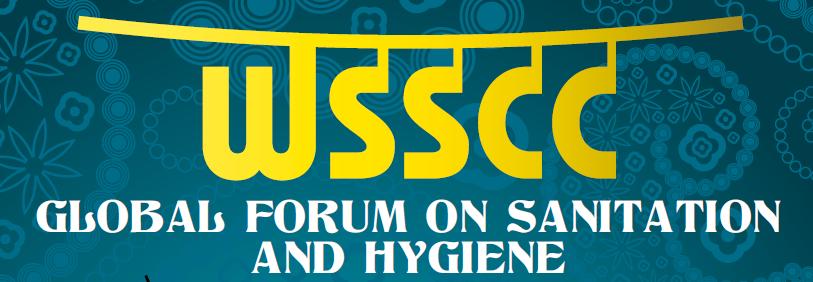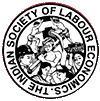/topics/equity
Equity
Live feed: WSSCC Global Forum on Sanitation & Hygiene - 9-14 October 2011, Mumbai
Posted on 13 Oct, 2011 10:22 AM
We all know the statistics: 2.6 billion people around the world are without access to a basic toilet. Diarrhoea – the vast majority of it due to poor sanitation and hygiene – is the second biggest killer of children worldwide.
Between us, we also have many of the answers. We have experiences of low-cost technologies that are acceptable and affordable for poor communities in rural areas. We have been involved in designing communications programmes that have contributed to sustained behaviour change.
We have seen governments and civil society working together to set up policies and programmes that ensure access to better sanitation in challenging settings, such as crowded informal settlements in fast-growing megacities. We have also seen businesses grow up around sanitation and hygiene, allowing individuals to make a dignified living and clients to buy the sorts of products and services they want and need.
Thirupporur and Vadakkuppattu: Eighteenth century locality accounts – A report by Centre for Policy Studies
Posted on 10 Oct, 2011 08:26 PMThis research monograph on Thirupporur and Vadakkuppatu: Eighteenth Century Locality Accounts, prepared jointly by the Centre for Policy Studies, Chennai and Tamil University, Thanjavur, presents a graphic picture of the society and polity of eighteenth century Tamil Nadu.
State-level consultation on PESA, Agragamee, October 11 & 12, 2011, Bhubaneswar
Posted on 08 Oct, 2011 05:38 PMContent courtesy: OpenSpace
Organization: Agragamee
![]()
Agragamee, which means, "pioneer", is a group of activists and thinkers committed to working with marginalized and underprivileged communities in the tribal districts of Orissa, in India. Our efforts at initiating a people-centred development have combined an issue-based approach with programmes for socio-economic development.
Women and water - A collection of papers - Economic and Political Weekly - Volume XLVI - Number 18 - April 30 (2011)
Posted on 07 Oct, 2011 07:31 PMIt does this in the context of the new decentralised governance structures that are based on the assumption that domestic water supply is the legitimate domain of women and thus power and authority needs to be granted to women to manage water resources.
However, there is a very little understanding of how this has benefited women and what are the challenges experienced during the process of implementation or the outcomes gained from these processes, in the context of the Indian society that continues to propogate patriarchal values and is based on structures that are inherently hierarchical and inequitable.
Some of the papers dwell on and explore the inherent biases in the literature and make an attempt to understand their implications for women in managing water resources, while some of the papers share case studies on the outcomes of the implementation of the decentralised water management policies at the village level.
"The water in springs of my hills is cool, do not migrate from this land, o my beloved" - Solving water shortages through ancient knowledge
Posted on 24 Sep, 2011 12:33 AMAuthor: Anupam Mishra
"The water in springs of my hills is cool, Do not migrate from this land o my beloved.”
Call for papers - 53rd Annual Conference, Indian Society of Labour Economics, December 17-19, 2011, Udaipur, Rajasthan
Posted on 19 Sep, 2011 09:16 AM
Organisation: Indian Society of Labour Economics (ISLE)
Venue: Udaipur, Rajasthan
Description:
The Indian Society of Labour Economics (ISLE) is a broad based organization, which promotes comprehensive scientific studies of labour and related matters, provides a forum for free and frank exchange of views on various aspects of labour and related issues among all the people concerned, and disseminates information and knowledge for a wider debate.
Release of the book ‘Rising Utthan’ by Utthan, September 17, 2011, Ahmedabad
Posted on 12 Sep, 2011 12:38 AMOrganization: Utthan
Venue: Ahimsa Shodh Bhavan Hall, Gujarat Vidyapith

Utthan envisions a society that imbibes and ensures the values of gender justice, equality, peace and happiness, in practice. It brings together a group of professional development workers, committed to working with communities towards an India free of inequalities and discrimination with equal opportunities, security and freedom for all.
Its efforts to translate this vision into reality is focused on its mission to serve those most vulnerable such as women, adivasi communities, dalits, minorities and the poor.
Basanti and the Kosi: How one woman revitalized a watershed in Uttarakhand
Posted on 07 Sep, 2011 03:22 PMGuest post by: Chicu
Tribal movements and livelihoods – Recent developments in Orissa – A working paper by CPRC-IIPA
Posted on 31 Aug, 2011 08:48 PMFor the last few decades and more particularly since 1990’s the issue of human rights-violation of rights to life and livelihood of tribal peoples’ is a central concern. Therefore, the discourse on tribal movements and issues of tribal livelihood revolved around securing their well-defined rights on land and forest resources.
Social equity and integrated water resources management – A background paper by Global Water Partnership
Posted on 31 Aug, 2011 04:10 PMIt provides an analytical framework that policy makers and water professionals can use to bring greater clarity to the issue of social equity in their local context.




